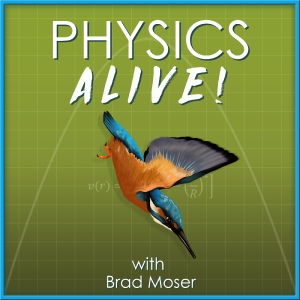

Wouter Hoogkamer, Assistant Professor at the University of Massachusetts, Amherst, is the director of the UMass Integrative Locomotion Lab. He studies human locomotion, integrating neurophysiology, biomechanics and energetics. In today’s episode, learn about his research on running economy and breaking the two-hour marathon mark. Plus, we’ll take his expertise and distill it down to some experiments and concepts that we can use in the high school and college intro physics classroom.
Show notes: www.physicsalive.com/running
Learn more about Wouter and his work:
- Wouter's UMass Amherst faculty page
- https://twitter.com/woutersinas
The University of Massachusetts Integrative Locomotion Lab (UMILL)
- The lab's webpage
National Biomechanics Day
- https://thebiomechanicsinitiative.org/
Video analysis software
- Kinovea
- Tracker
- ImageJ
Force plates
- Vernier force plate
- Pasco force plate
Selected articles written by or quoting Wouter Hoogkamer
- Breaking the Two-Hour Marathon Barrier (2017)
- A Comparison of the Energetic Cost of Running in Marathon Racing Shoes (2018)
- The Benefits of Drafting (2020)
- Altered Running Economy Directly Translates to Altered Distance-Running Performance (2016)
More articles at Media Coverage on the UMILL website
More Episodes
All Episodes>>You may also like
Create Your Podcast In Minutes
- Full-featured podcast site
- Unlimited storage and bandwidth
- Comprehensive podcast stats
- Distribute to Apple Podcasts, Spotify, and more
- Make money with your podcast












